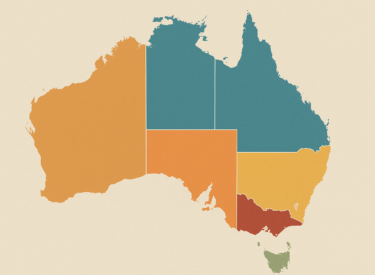Are you feeling the financial squeeze?
If so, you’re not alone.
Fewer than one-third of Australians (28%) feel optimistic about their financial situation heading into 2025, according to Canstar’s Consumer Pulse Report 2024.

Rising mortgage repayments, rent increases, and the skyrocketing cost of living have stretched household budgets to breaking point.
Let's unpack the results of the report and see where we go from here and if there's relief on the horizon.
Housing costs: the nation’s biggest financial worry
According to Canstar's data, housing costs, whether mortgage repayments or rents are now the number one concern for Australians, with 25% of respondents citing this as their top financial issue.

That’s three times higher than in 2019.
For many, the numbers are staggering.
For example, mortgage holders have seen repayments surge by 52% since April 2022.
This means that a $600,000 loan over 25 years now costs up to $1,452 more per month.
Meanwhile, renters, especially Gen Z, have it tough too.
58% of renters faced rent hikes in 2024, averaging an extra $230 per month.
Sally Tindall, Canstar’s Data Insights Director, sums it up perfectly:
“Housing costs have become the number one financial concern for Australians in 2025.
Whether it’s skyrocketing mortgage repayments or surging rents, it’s clear that housing affordability is stretching household budgets to their limits.”
Tindall points to refinancing as one of the quickest ways to ease the financial burden:
“Switching lenders or negotiating a lower loan rate with your existing bank is one of the easiest ways to reduce mortgage repayment costs.”
Yet, despite this advice, only 10% of mortgage holders have switched lenders in the past year, while another 26% intend to but haven’t acted yet.
The grocery and utility crunch
Housing may top the list, but grocery bills are a close second, with 20% of Australians naming food costs as their biggest financial concern, according to Canstar's data.
With households now spending an average of $813 per month on groceries, it’s no wonder families are feeling the pressure.
Meanwhile, utility bills, while still significant, have dropped on the worry list thanks to widespread government rebates.
In fact, just 7% of Australians rank electricity and gas costs as their top concern, compared to 14% in 2019.
Even so, Australians are not complacent.
Tindall stresses that loyalty won’t save you in 2025:
“Put all your regular bills: electricity, insurance, mobile, internet, on the chopping block and cut ties with providers if you find a better deal.
Loyalty won’t pay.”
Can you keep up with rising bills?
Over one-third (37%) of Australians expect to miss at least one regular bill or loan repayment in 2025, according to Canstar's data.
In fact, Gen Z (53%) and Millennials (44%) are particularly vulnerable.

Tindall encourages Australians to face the issue head-on:
“It’s deeply concerning that so many Australians expect to struggle with their bills next year.
The key is to act early—don’t wait until you miss a payment. Call your provider and explore options like part payments or extensions.”
For those feeling overwhelmed, Tindall recommends reaching out for professional help:
“Speak to an independent financial advisor or call the National Debt Helpline.
They can help you develop a plan to get back on track with as little fallout as possible.”
What about property opportunities?
Despite all the financial strain, it’s clear that Aussies still believe in property as a wealth-building tool.
Canstar’s report reveals that 44% of current property owners are open to buying an investment property in the next two years.
The top motivators include:
- Lower interest rates (25%)
- Reduced living costs (23%)
- Falling property prices (20%)
While investors look ahead with confidence, Tindall raises a crucial point:
“More investors entering the market could drive prices higher and lock first-home buyers out, but greater investment in new builds might help alleviate supply pressures.”
On the flip side, 4% of property owners are considering selling their homes because they simply can’t afford higher loan repayments.
For those feeling trapped, the good news is that refinancing is becoming easier, with lenders now applying a lower stress test buffer for refinancers with solid repayment histories.
What can you do to take back control?
If the challenges ahead seem overwhelming, Canstar recommended practical steps you can take now to protect your financial position heading into 2025:
- Refinance your Mortgage: Even a 1% rate drop can save you hundreds per month. If you haven’t tested the market since rates began rising, now is the time.
- Reassess your bills: Compare energy, insurance, internet, and mobile plans. The competition is fierce, and better deals are out there.
- Shop smarter: With groceries a key pain point, switching to home brands, shopping sales, and using reward programs can make a big difference.
- Tackle debt early: Don’t ignore rising debt. Speak to your providers and financial advisors before the situation worsens.
Final thoughts
There’s no denying the challenges we face.
But if there’s one thing Australians have always shown, it’s resilience.
Sally Tindall’s advice rings true here:
“Challenges like these don’t disappear overnight, but small, consistent changes—whether in your mortgage, bills, or spending habits—can help you take back control.”
While the path ahead may look uncertain, the opportunities are there for those who remain proactive.
So, whether it’s refinancing, renegotiating, or rethinking your financial strategy, the time to act is now.














